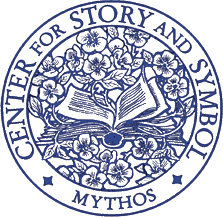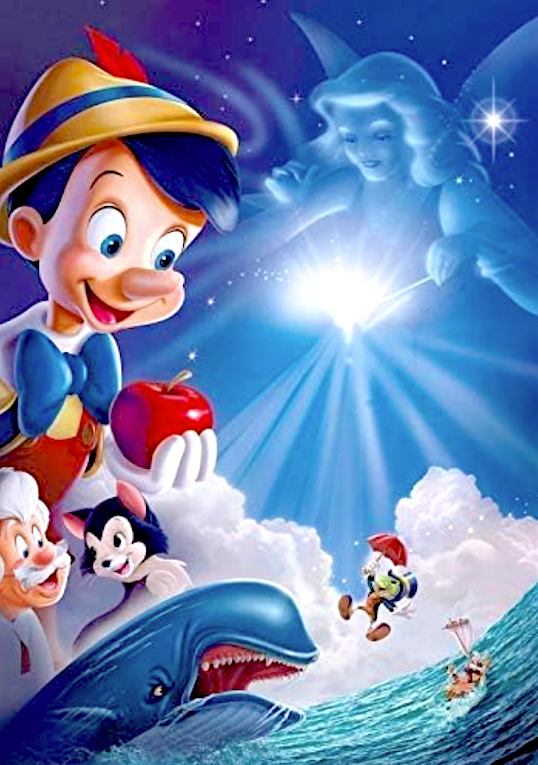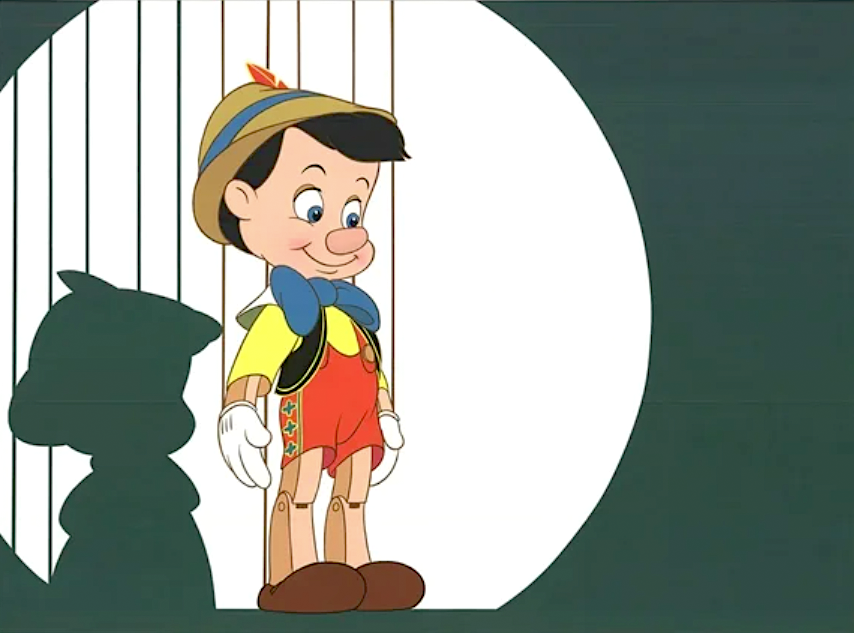
Register Articles Joseph Campbell Search
In this seminar, mental health professionals will explore the ethical foundations of authenticity, integrity, and compassion through the timeless story of Pinocchio. The familiar tale offers metaphors for the ethical dilemmas and personal transformations that clinicians face in their work.
Ethical codes call on mental health professionals to monitor their own personal problems and emotional stability. This day focuses on the stresses of practice and how such pressures can impact judgment.
Clinical work involves a degree of openness to the unconscious. Handling psychologically complicated projections can be a challenge. There are rough stretches in mental health careers. Old wisdom stories provide guidance for managing the emotional distress of our professional duties.
Pinocchio’s journey from puppet to becoming real mirrors the professional’s path toward authentic practice—navigating truth-telling, responsibility, and the pull of external pressures. Through storytelling, discussion, and ethical analysis, participants will reflect on their own professional identities, deepen their understanding of legal and ethical standards, and cultivate the courage to practice with integrity and heart.
The main focus will be on Pinocchio, with some reference to its inspiration, the tale of Jonah and the Great Fish, a tale that reveals the consequences of avoidance and the redemptive power of compassion. Emphasis will be on the potential development that can stem from arduous professional experiences.
By the end of this seminar, participants will be able to:
Analyze ethical dilemmas using narrative frameworks drawn from Pinocchio and Jonah.
Evaluate the role of authenticity in clinical decision-making and professional boundaries.
Apply integrity when navigating tensions between personal values and professional obligations.
Demonstrate compassionate responses to client needs while maintaining ethical clarity.
Reflect on their own professional journey to identify areas for ethical growth.
Explain self-monitoring to enhance professional reliability
Online live webinar with storytelling, analysis of symbolism in stories and discussion of clinical applications
CE Credits: 6 hours (meets law, ethics, and diversity requirements)
Audience: Psychologists, LMFTs, LCSWs, LPCs, RNs and pre-licensed professionals. Also of interest to others in helping professions like teachers, clergy and human resource managers.
The material is presented at an introductory level for psychologists, requiring no background in mythic studies, narrative theory, or Jungian psychology. No advance preparation is necessary. However, participants are provided with a recommended reading list as part of their class materials.
The following CE credits are available:
Psychology, LMFT, LCSW, LPCC, Ed Psych, NBCC : 6 CE hours
Nursing : 7 hours
Most teachers must get credits approved by their school administration. Center courses meet the requirements in most states. Contact us if you need more information about receiving credit in your state.

Select a seminar from the Current Course Offerings
Register online or call the Center at 805-687-7171

Jonathan Young, PhD is a psychologist (PSY10231) and minister of the Live Oak Unitarian Universalist Congregation of Goleta, a suburb of Santa Barbara, California. Dr. Young assisted mythologist Joseph Campbell at seminars and was founding curator of the Joseph Campbell Archives and Library, (now the Opus Archives & Research Center). He also launched the Mythological Studies doctoral program at the Pacifica Graduate Institute. Dr. Young is featured in several documentary series on the History Channel.
Anne Bach, M.S., LMFT 38891 is a specialist in uses of writing in psychotherapy. She gives presentations on creativity as inner work at major conferences, and lectures widely on psychological dimensions of expressive writing. She also appears in memoir drama performances for various theater groups, including the Marsh Stage in Berkeley. Her clinical background includes poetry therapy with seriously mentally ill patients.

Zoom link goes live at 9:30 a.m., California time - Seminar 10 a.m. to 5 p.m.
- Pinocchio and the ethics of being genuine
- Self-monitoring as effective risk management
- Using reflective practices to maintain core values
- Stress, burnout, and renewal
- Please return on time
- Using reflective practices to maintain core values
- Effective record-keeping to minimize exposure
- Owning our developmental issues
- Being both imaginative and methodical
- Personal integration and CE feedback time

Adams, Michael Vannoy (1996) The Multicultural Imagination: "Race", Color, and the Unconscious. London: Routledge
Becker Christina (2004) The Heart of the Matter: Individuation as an Ethical Process. Wilmette, IL: Chiron Publications
Beebe, John (2005) Integrity in Depth. College Station, TX: Texas A&M University Press
Brewster, Fanny (2017) African Americans and Jungian Psychology: Leaving the Shadows. London: Routledge
Campbell, Joseph (2013) Goddesses: Mysteries of the Feminine Divine. Novato, CA: New World Library
Eleftheriadou, Zack (2018) Psychotherapy and Culture: Weaving Inner and Outer Worlds. London: Routledge
Guggenbuhl-Craig, Adolf (2021) Power in the Helping Professions. Putnam, CT: Spring Publications
Neumann, Erich. (1990) Depth Psychology and a New Ethic. New York: Harper
Sue, Derald Wing, et al. (2022) Counseling the Culturally Diverse: Theory and Practice, 9th Edition. New York: Wiley
Young, Jonathan (1996) Saga - Best New Writings on Mythology Vol. 1. Ashland, OR: White Cloud Press
Young, Jonathan (2000) Saga - Best New Writings on Mythology Vol. 2. Ashland, OR: White Cloud Press
